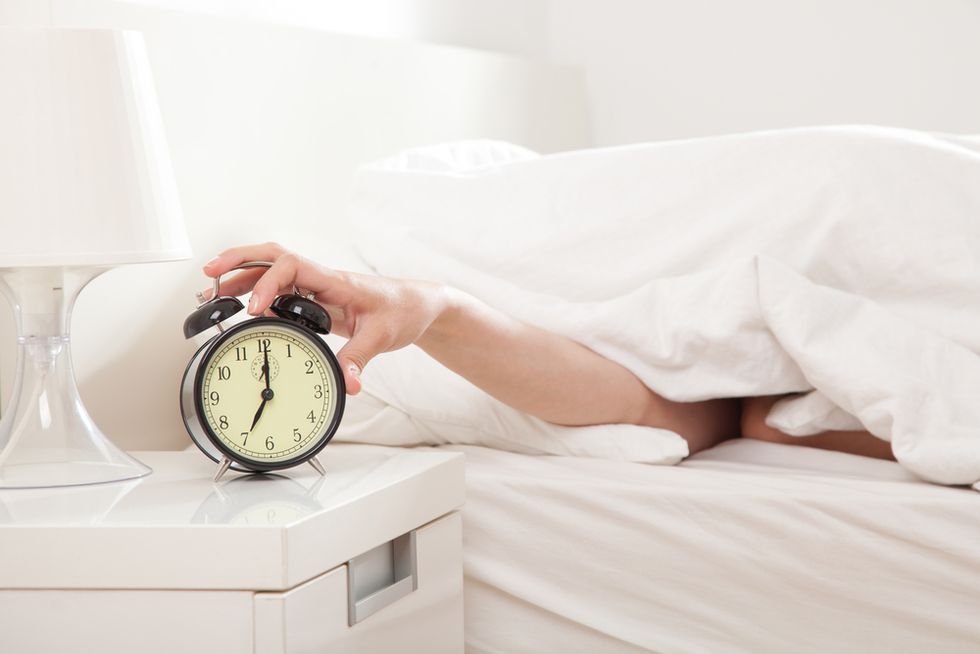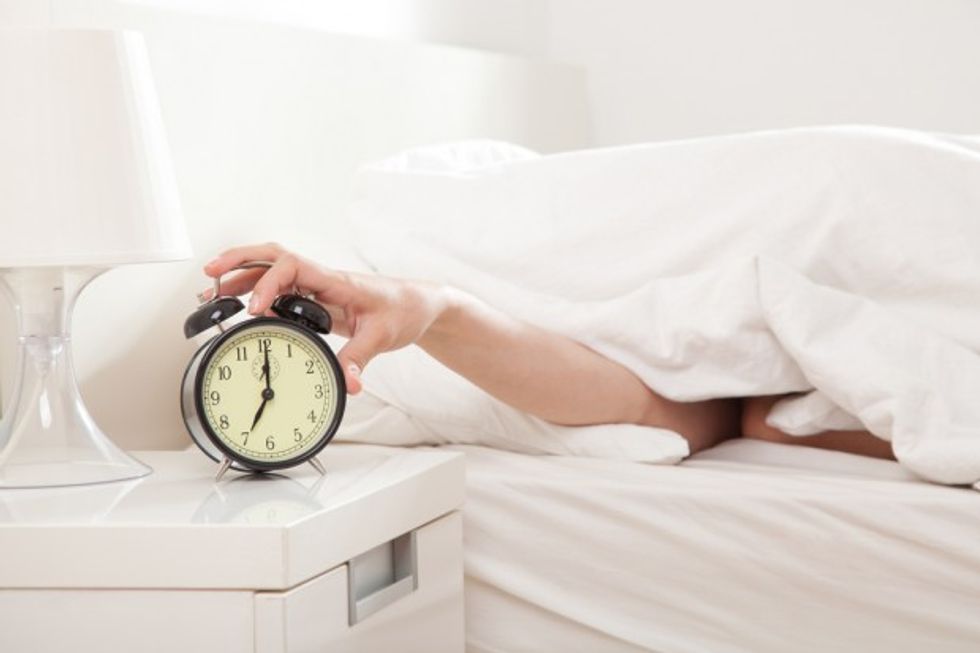
Photo credit: Shutterstock

We all know the feeling. In fact, many probably experienced this the Monday after the Super Bowl: the dreaded morning alarm.
You’re sound asleep after an evening of good food and drink — and probably very little sleep. It’s still dark, and it’s cold outside. Unless you’re one of the millions of Americans who missed work the day after the Super Bowl, you probably hit “snooze” on your alarm and slept for another few minutes.
But according to a scientific report released by CNN last week, your “snooze” habit could be causing you more harm than good.

"When you hit the snooze button repeatedly, you're doing two negative things to yourself," Robert S. Rosenberg, medical director of the Sleep Disorders Centers of Prescott Valley and Flagstaff, Arizona, told CNN.
"First, you're fragmenting what little extra sleep you're getting, so it is of poor quality. Second, you're starting to put yourself through a new sleep cycle that you aren't giving yourself enough time to finish. This can result in persistent grogginess throughout the day."
Scientists have a word for the lethargy brought on by insufficient slumber: “sleep inertia.” The National Sleep Foundation defines sleep inertia as "the feeling of grogginess and disorientation that can come from awakening from a deep sleep."
This stupor-like state slows down one’s decision-making abilities, impairing memory and hurting general performance throughout the day. And according to CNN, even coffee and a cold shower can't remedy it: It can take up to an hour and a half to shake off sleep-inertia exhaustion.
Rosenberg explained that the snooze button actually messes with one’s brain hormones.
"You're throwing off your circadian cycle," he said. This can be extremely damaging as the circadian cycle determines one’s ability to feel awake during the day and tired at night.
Rosenberg said that the urge to press “snooze” and sleep a bit longer is indicative of a larger problem.
"Most people are doing this because they're not getting enough sleep on a daily basis," he said. Chronic sleep deprivation, which is defined as six or fewer hours of sleep a night over an extended period of time, produces what is called "social jetlag."
Over time, those who suffer from social jetlag have been shown to have a higher body-mass index and an elevated risk of diabetes.
The bottom line is this: If you want to feel more energetic on a regular basis, experts recommend 7-9 hours of sleep every night.
For more, watch Business Insider’s Graham Flanagan discuss the scientifically proven consequences of hitting the snooze button:
__
Front page photo courtesy of Shuttershock.